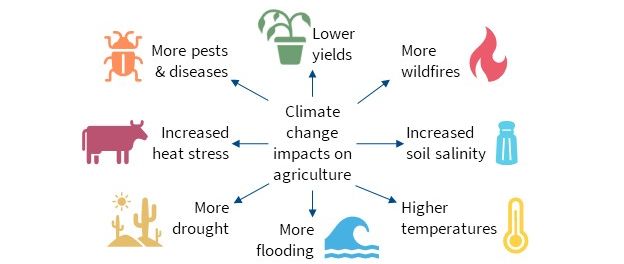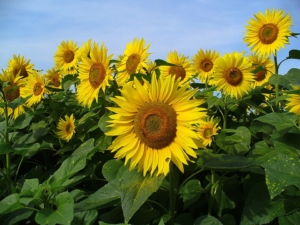
Study: New breeding methods hardly contribute to climate protection
According to Swiss bioethicists, deregulation of genetic engineering rules for plants optimised through targeted mutation and cisgenetics will make little contribution to climate protection by 2050.
Up and down the country, national governments and the EU Commission (EC) are campaigning to facilitate the commercialisation of cis-gentic and genome-edited optimised crops through intervention in the species’ own genes in order to achieve the Paris climate targets. But there is also opposition to liberalisation, not only from die-hard opponents of biotech plant breeding, but also from proven experts. “Swiss agriculture should not rely too much on novel genetic engineering” writes the Federal Ethics Committee on Non-Human Biotechnology (Ekah). Instead, the experts, which however includes GM opponents, recommend curbing meat production by reducing the number of animals. This is because in Switzerland, livestock farming contributes about 85% of agricultural greenhouse gas emissions, they explain.
“However, a clear majority of the commission […] considers the potential of genetic engineering methods in arable farming to be too insignificant to rely on these methods in view of Switzerland and especially in view of the urgency of the climate goals as a whole,” Ekah writes in its 36-page paper. However, the “independent bioethics commission”, which includes GMO opponents, appointed by the Swiss Federal Council does not say a word about whether the targeted GHC reduction could be achieved by means of biotechnologically and microbially produced protein substitutes. Manufacturers of vegan protein, on the other hand, emphasize that their fermenter-supported processes reduce CO2 emissions by more than 85% and water consumption by at least 60% compared to conventional agriculture and livestock farming, and therefore want to completely decouple protein production from animals and land use.
The majority of Ekah experts recommend not relying too heavily on new genomic techniques (NGT) to reduce greenhouse gas emissions in agriculture – a stated goal of the EU Commission, which presented a draft regulation in the first week of July seeking exemptions for cisgenic and genome-editing-based breeding from strict EU genetic engineering law. An Ekah majority estimates that the climate benefits of such targeted breeding, which have been proven so far, are “not safe enough.” The Swiss government would therefore have to ensure that climate targets can be met without these new technologies.
This would require a radical restructuring of agriculture. More plant-based food should be grown on agricultural land, the commission recommends – alongside reduced, grassland-based livestock farming as in Ireland. The production of animal feed in Switzerland should be limited, and imports should be avoided. Imports of animal products that do not come from grassland farming should be regulated, the Ekah paper says.
Just as in Switzerland, Austria is committed to GMO-free cultivation and wants to block the EU Commission’s deregulation proposal, as it does not contain any effective measures for the coexistence of NGT breeding and organic farming. Instead, the regulation is intended to nullify the existing cultivation veto rights of EU member states, provided that an NGT breeding has already been released in another (GMO-friendly) member state without any apparent short-term risk to health or the environment. This would mean that organic farmers would have to migrate to regions where national coexistence rules are established, as is currently the case in Portugal. For the EU, the goal of achieving a 30% organic farming share in the absence of appropriate coexistence rules would no longer be achievable and would make the EU largely dependent on imports. As a means to achieve coexistence of organic farming and NGT crops, the Swiss Research Institute of Organic Agriculture proposes a cultivation cadastre that shows before sowing on which field NGT seeds are to be used. This would enable farmers to reach agreements without the need for mandatory labeling of NGT products.


 H. Zell - wikipedia.org
H. Zell - wikipedia.org fvm.dk
fvm.dk adobe stock photos - Sergii Figurnyi
adobe stock photos - Sergii Figurnyi